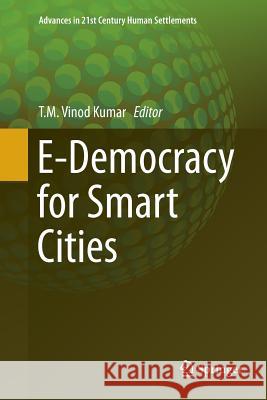E-Democracy for Smart Cities » książka
topmenu
E-Democracy for Smart Cities
ISBN-13: 9789811350306 / Angielski / Miękka / 2018 / 551 str.
Kategorie BISAC:
Wydawca:
Springer
Seria wydawnicza:
Język:
Angielski
ISBN-13:
9789811350306
Rok wydania:
2018
Wydanie:
Softcover Repri
Ilość stron:
551
Waga:
0.79 kg
Wymiary:
23.39 x 15.6 x 2.97
Oprawa:
Miękka
Wolumenów:
01
Dodatkowe informacje:
Wydanie ilustrowane











